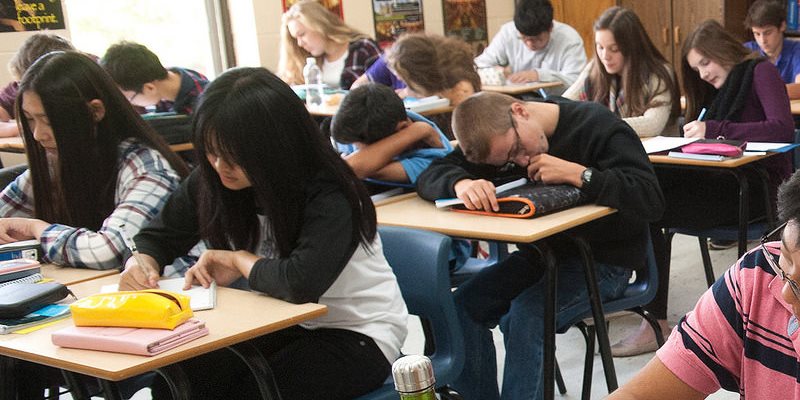Ontario should increase support for independent schools in light of falling math scores

As families across the province send their children back to school, new evidence shows even more Ontario students struggle with math. Less than half (49 per cent) of Grade 6 students met the provincial benchmark in math on tests administered in the 2017-18 school year—a one percentage point decline from the previous year’s dismal results.
The Ford government plans to consult with Ontario families on changes to the math curriculum. Given the poor test performance, however, policymakers should also consider more fundamental changes to the way the province funds and delivers education.
For example, Ontario could look west to British Columbia, which offers families greater access to a wider variety of educational options while achieving better results for students.
It’s important to understand that unlike many provinces in Canada, Ontario’s government provides no financial support for parents who send their children to independent schools. To the extent the province financially supports any kind of choice, it’s entirely within the public school system. Specifically, Ontario fully funds (i.e. no additional cost to parents) Catholic and French education alternatives in the public system.
In contrast, B.C. provides no religious (and very little specialized) education in the public system. Independent schools almost entirely deliver such options in B.C. The key difference is that in B.C., the government helps parents with the cost of accessing independent options. Specifically, B.C. pays up to 50 per cent of the comparable cost of independent schooling. Indeed, that’s one reason B.C.’s enrolment in independent schools doubles the rate of Ontario—12.9 per cent versus 6.1 per cent of total enrolment.
This approach helps bring independent schooling and additional options within the financial reach of more families. And according to the evidence, as Ontario struggles, B.C. is delivering excellent educational outcomes. The province consistently ranks near the top of Canadian provinces in independent analyses of student success.
And while proponents of a monolithic public system sometimes raise questions about quality in less-expensive independent schools that lower-income families may choose, the evidence from B.C. should calm those fears. A recent study examining academic performance (as measured by standardized tests in B.C.) found that students at “non-elite” independent schools, which represent more than 90 per cent of all independent schools in the province, outperformed their public school counterparts in all six Foundation Skills Assessment (FSA) tests in elementary school and all five provincial exams in secondary school, though the difference for English 12 was not statistically significant.
When looking at elementary math scores specifically, students at non-elite independent schools in B.C. score 14.4 per cent higher than public school students in Grade 4 and 14.2 per cent higher in Grade 7.
This is an important finding. as non-elite independent schools serve students with the same socio-economic characteristics as public schools. A recent analysis of B.C. families found that the after-tax income of families who choose non-elite independent schools were essentially the same as public government-run school families.
Back in Ontario, the province’s poor math scores should prompt a fundamental rethink of how we fund and deliver education. By studying B.C.’s example, Ontario can learn about a system that provides more educational choice and diversity, and consistently better student performance.
Authors:
Subscribe to the Fraser Institute
Get the latest news from the Fraser Institute on the latest research studies, news and events.


